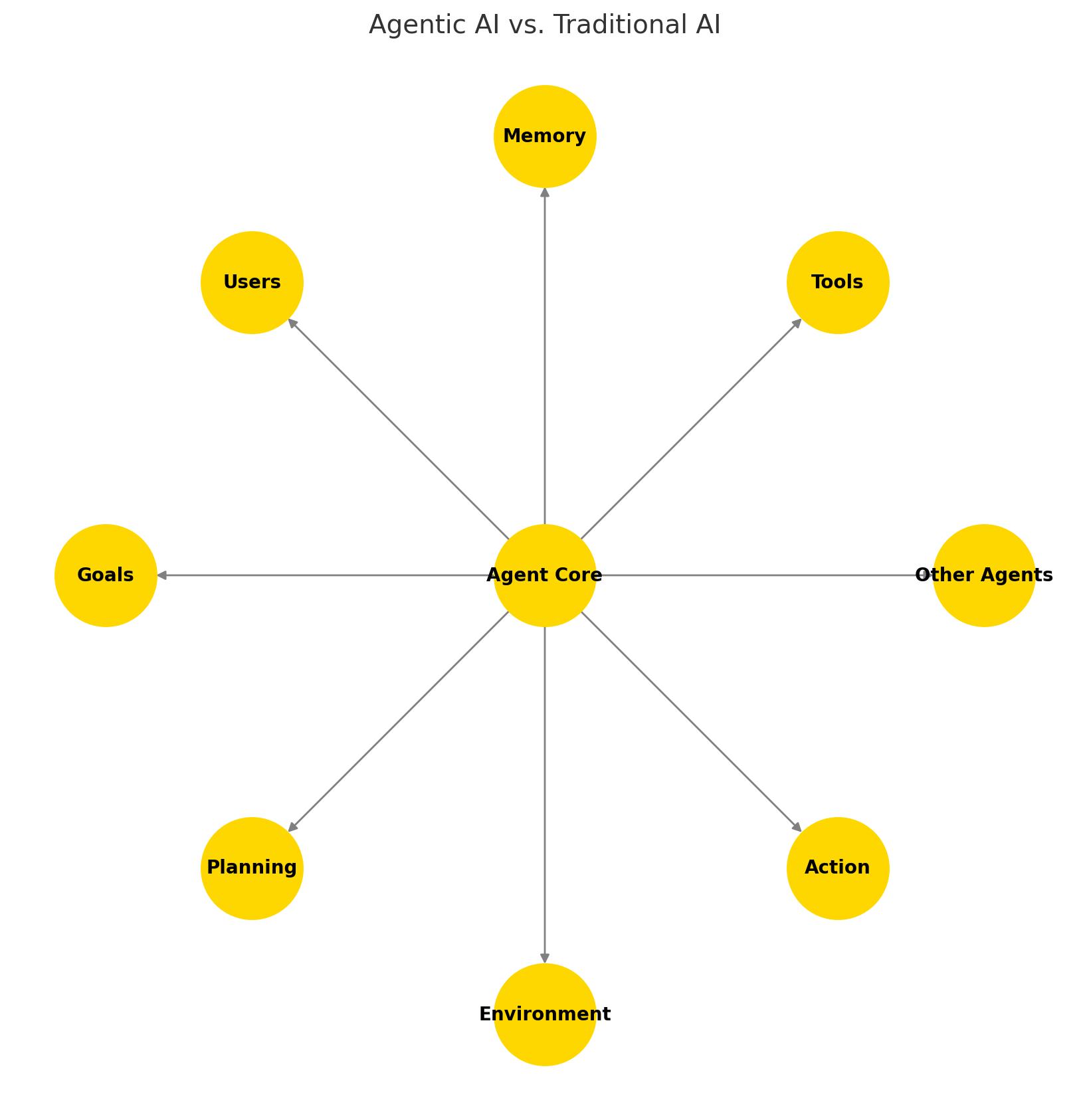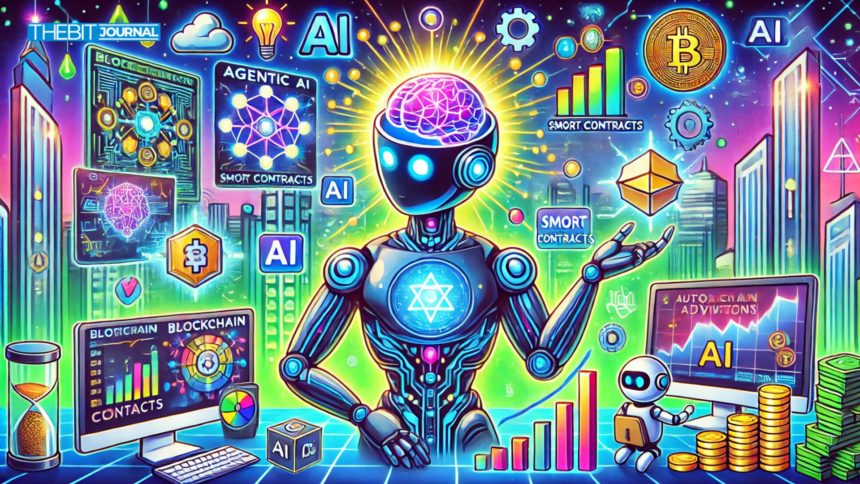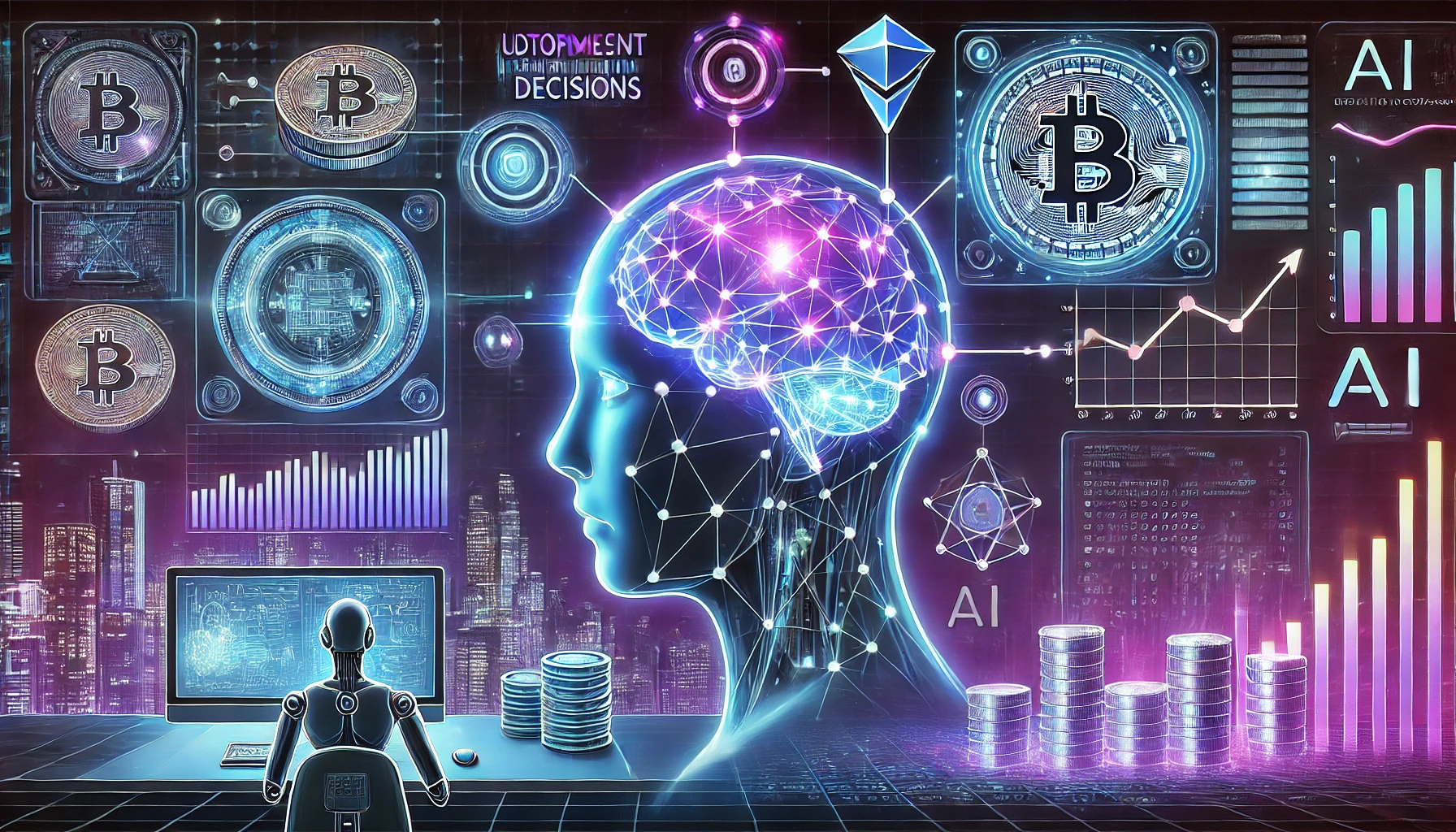Artificial intelligence is evolving rapidly, and the next big leap is Agentic AI—a form of AI that can operate independently, set its own objectives, and adapt to real-world scenarios without continuous human input. Unlike traditional AI, which requires predefined rules and direct oversight, agentic AI possesses the ability to self-direct, learn from outcomes, and refine its decisions dynamically.
The implications of this technology are profound. From automated financial trading to self-optimizing supply chains, agentic AI is already reshaping industries. But how does it work, and what does it mean for sectors like cryptocurrency, finance, and blockchain? Let’s break it down.
How Does Agentic AI Work?
At its core, agentic AI operates using three fundamental mechanisms:
- Goal Setting: It identifies and establishes objectives autonomously, either based on user-defined parameters or real-time data.
- Decision-Making: Using machine learning models and real-time data analysis, agentic AI determines the most effective course of action to achieve its objectives.
- Learning and Adaptation: Through a continuous feedback loop, the AI refines its strategies based on past outcomes, enhancing efficiency over time.
This combination allows agentic AI to make decisions without human intervention while continuously improving its performance based on environmental changes.

Real-World Applications of Agentic AI
Agentic AI is already proving valuable across multiple industries, helping to optimize operations, reduce inefficiencies, and make intelligent, goal-oriented decisions.
1. Financial & Crypto Markets
In the financial sector, agentic AI is revolutionizing algorithmic trading by autonomously analyzing market conditions, executing trades, and optimizing risk management.
- Crypto Trading & DeFi Automation: AI-driven bots can scan market trends, predict price movements, and execute transactions without human intervention, enhancing trading efficiency.
- Fraud Detection & Regulatory Compliance: Agentic AI helps track illicit transactions, identify security breaches, and maintain financial transparency in decentralized finance (DeFi).
- NFT & Metaverse Asset Management: It can predict asset appreciation, identify market trends, and help users make data-driven investment decisions in the NFT space.
2. Supply Chain & Logistics
In global logistics, agentic AI can self-optimize supply chains by:
- Predicting and mitigating disruptions
- Identifying cost-effective delivery routes
- Managing inventory autonomously to prevent shortages
3. Healthcare & Drug Discovery
Agentic AI is revolutionizing healthcare by analyzing massive datasets to:
- Develop new treatments faster by identifying promising drug compounds
- Optimize patient care through predictive diagnostics
- Enhance hospital efficiency by automating administrative tasks
4. Customer Service & Virtual Assistants
Advanced chatbots and AI-powered customer service agents can:
- Resolve issues autonomously without human intervention
- Provide hyper-personalized recommendations based on user behavior
- Improve efficiency in e-commerce and business communication
Agentic AI’s Impact on Crypto and Web3
In the world of blockchain and Web3, agentic AI is making significant strides. The technology is being integrated into:
- Smart Contract Security Audits: AI-driven systems can detect vulnerabilities and flag security risks in real time, preventing hacks and exploits.
- Automated DeFi Lending & Staking: AI-powered DeFi bots can adjust lending rates, optimize yield farming, and autonomously manage crypto portfolios.
- Web3 Governance Automation: Decentralized Autonomous Organizations (DAOs) can use agentic AI to automate voting systems and proposal evaluations for more efficient governance.
The intersection of agentic AI and decentralized technologies represents a new frontier—where AI agents operate within blockchain ecosystems to drive efficiency and security.
Challenges and Future of Agentic AI
Despite its potential, agentic AI faces key challenges:
- Security Risks: AI systems must be designed to prevent adversarial attacks and manipulation.
- Ethical Considerations: Who is responsible when AI makes an autonomous decision that leads to a financial loss or ethical dilemma?
- Regulatory Uncertainty: Governments are still grappling with how to classify and regulate agentic AI within existing legal frameworks.
However, as AI continues to evolve, we can expect agentic AI to become an integral part of global business, finance, and blockchain ecosystems.
Final Thoughts
Agentic AI represents a major evolution in artificial intelligence—one that removes the need for constant human oversight while enabling intelligent, goal-oriented decision-making. Whether in crypto trading, supply chains, healthcare, or Web3 governance, this technology is set to transform how businesses and individuals interact with AI.
As more industries integrate agentic AI into their workflows, the way we perceive artificial intelligence will shift. Instead of merely reactive AI, we are moving toward self-directed AI agents that can autonomously navigate complex, real-world problems.
Stay tuned to The BIT Journal and keep an eye on Crypto’s updates.
FAQs
1. How is agentic AI different from traditional AI?
Unlike traditional AI, which requires constant human input, agentic AI can set its own goals, make independent decisions, and learn from outcomes, making it more autonomous.
2. What are some real-world applications of agentic AI?
Agentic AI is used in crypto trading, finance, healthcare, supply chains, and customer service—automating processes and optimizing decision-making.
3. Can agentic AI be used in blockchain and Web3?
Yes! It is already being integrated into DeFi trading, NFT asset management, and decentralized governance, making blockchain ecosystems more efficient.
4. What are the risks of agentic AI?
Security vulnerabilities, ethical concerns, and regulatory uncertainty remain key challenges as AI adoption expands.
5. Is agentic AI the future of artificial intelligence?
Absolutely. As AI models become more sophisticated, autonomous AI agents will become more common across industries, fundamentally changing how businesses operate.
Glossary of Key Terms
Agentic AI – AI that operates autonomously, setting and pursuing its own objectives without direct human oversight.
Decentralized Finance (DeFi) – Blockchain-based financial services that operate without traditional banks.
Smart Contracts – Self-executing contracts on the blockchain that automatically enforce agreements.
Machine Learning – The process by which AI systems learn from data to improve decision-making.
Web3 – The next evolution of the internet, incorporating blockchain and decentralized technologies.





























